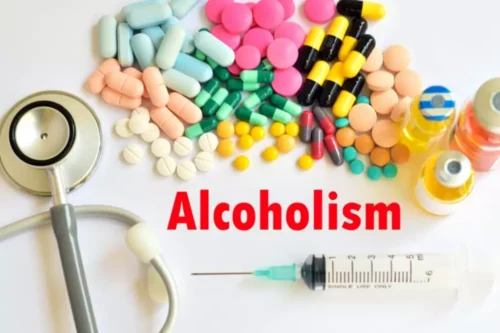While the research is unclear, some studies suggest that people with darker-colored eyes may tend to have a higher alcohol sensitivity on average. A high tolerance can be a symptom of an advanced alcohol use disorder, which can lead to many health-related and social implications and should be addressed immediately. Keep in mind that not being able to stomach alcohol like you used to is not the same thing as having an allergy to alcohol. With an allergy, the body’s immune system fights the substance, as it perceives it as a threat.
What Is Drug Dependence?
You are more likely to develop a high tolerance to alcohol if you drink very often and in heavy amounts. Sudden onset alcohol intolerance is when an alcohol intolerance that was not present from birth occurs abruptly later on in life. Most people with ALDH2 deficiency will notice some effects from the first time they take a drink, but there’s often no known reason as to why an alcohol intolerance develops. The activation of these neurotransmitter systems https://ecosoberhouse.com/ that mediate the intoxicating effects of alcohol produced acute within-system neuroadaptations that involve multiple targets. Based on the conceptual framework of within-system neuroadaptations that is outlined above, our review of the literature on rapid tolerance revealed the following systems as potential mediators. Alcohol tolerance, which is often colloquially referred to as “holding your liquor,” tends to be viewed as a positive thing.
Can You Build Up a Tolerance to Alcohol?
- Following a period of reduced alcohol use or abstinence, alcohol tolerance can decrease to levels before regular use.
- Since men have more of this enzyme, they process alcohol faster, meaning they have a naturally heightened tolerance to alcohol.
- If you realize that you have been drinking increasingly greater amounts of alcohol to get the same buzz that you once did, then you have developed a tolerance for alcohol.
- If you increase your drinking to compensate for this tolerance, your tolerance will likely get worse.
- Other studies found that sons of fathers with AUD displayed acute tolerance for alcohol – experiencing the pleasurable effects of alcohol early in drinking sessions while not experiencing the impairing effects of alcohol later in the sessions.
Unlike addiction, dependence is primarily a biological response to the presence of a drug. Critically, rapid tolerance may be a predictor of the development of chronic tolerance (Le and Kiianmaa, 1988; Khanna et al., 1991b; Rustay and Crabbe, 2004) and chronic cross-tolerance to other drugs (Bitrán and Kalant, 1993; Khanna et al., 1991b). However, we acknowledge that other animal models, including Drosophila melanogaster, have provided valuable information about the genetic and molecular regulation of rapid tolerance to alcohol.
How Long Does it Take to Reduce AT?
Children of alcoholics have a high risk of developing tolerance because of exposure to alcohol from a young age. Several studies have shown that sons of alcoholics were less impaired during drinking bouts compared to sons of non-alcoholics. People who go to clubs or pubs regularly become so used to the environment where they develop AT while they are in that environment. In this case, tolerance for alcohol is accelerated if an ardent drinker engages in several alcohol sessions in the same environment or, in some cases, accompanied by the same signals. The environment triggers this kind of AT, and the effects of alcohol may significantly differ if the individual received alcohol in a different venue or room.
Metabolic Tolerance Can Lead to Liver Damage
These symptoms, including withdrawal, define physical dependence, which can occur even with short-term use in some cases. It’s crucial to differentiate between addiction and physical dependence to avoid real-life severe consequences. Dependence is a physiological state that develops when the body becomes used to the presence of a substance, leading to withdrawal symptoms if the drug is reduced or discontinued. Alcohol building alcohol tolerance withdrawal symptoms develop if someone who is dependent on alcohol (i.e. has alcohol dependence) stops drinking very suddenly, or goes too long without alcohol. Some research studies have suggested that ethnicity can affect alcohol tolerance. For example, people of certain racial and ethnic backgrounds, particularly people who are East Asian, have a higher prevalence of alcohol sensitivity, due to genetic factors.
Why Some People Develop Alcohol Intolerance
Functional tolerance
- Even if we handled alcohol well in early adulthood, this can change as we age.
- However, it’s not the only cause and developing a tolerance does not mean that you’ve developed an alcohol addiction.
- We suggest that studies of alcohol sensitivity and tolerance using classic and modern experimental techniques will provide critical information to further understand AUD.
- So even if you’ve still been consuming large amounts of alcohol at home during lockdown, you may find you feel alcohol’s effects to a greater degree when drinking the same amount as normal in a pub or bar.



